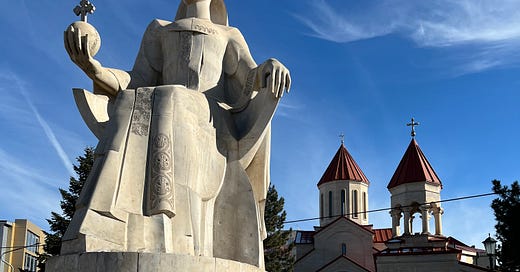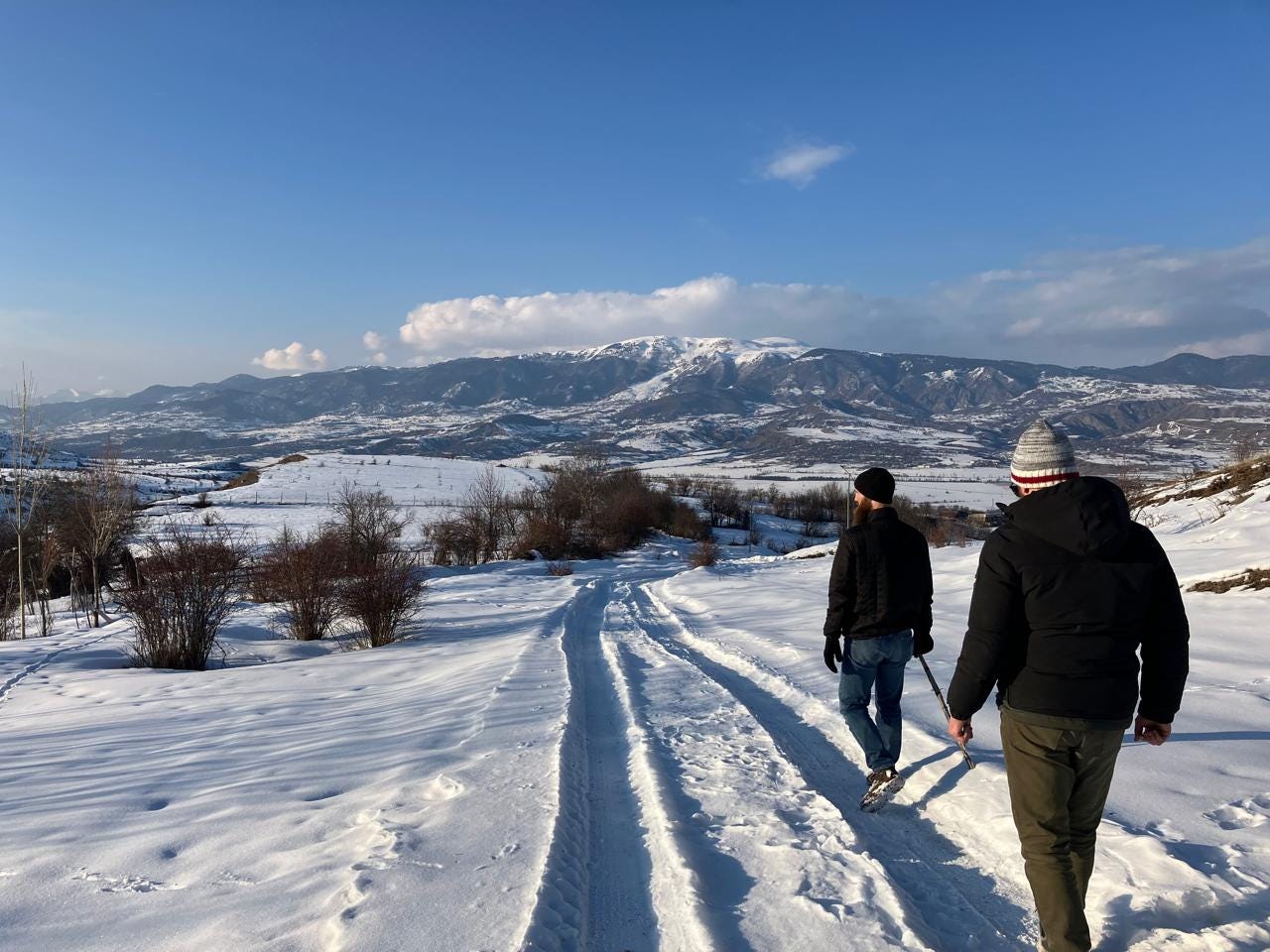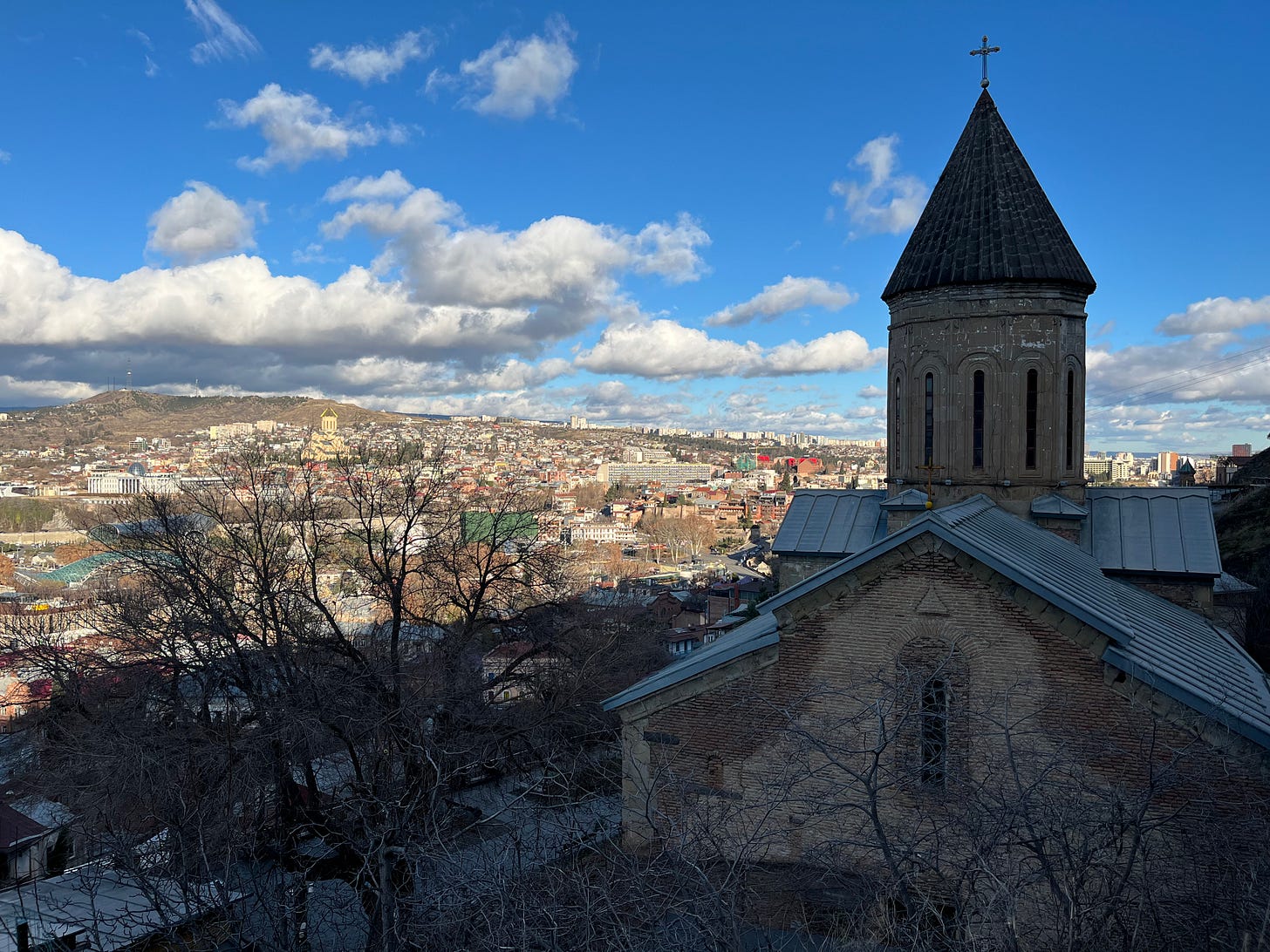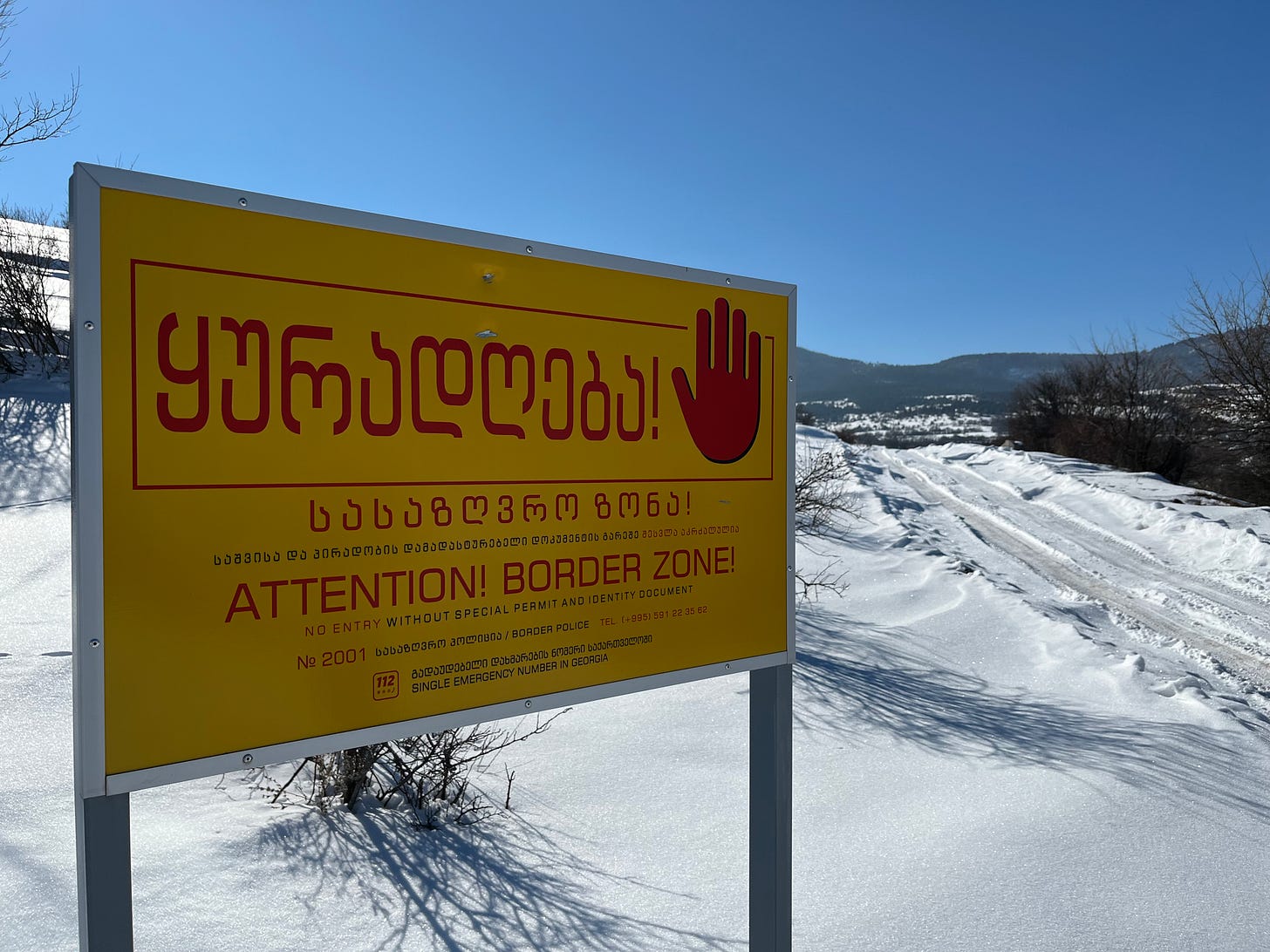Many of you are aware that I recently moved to the Republic of Georgia (or Sakartvelo) in the Caucasus Mountains of Eastern Europe. The reason I ended up here has to do with a serendipitous meeting with the founder of First Things Foundation (FTF), John Heers, at a Keipi dinner in Minnesota (read more on the website). FTF had immediate appeal since I was already looking for opportunities to explore life abroad in a traditionally Orthodox Christian country. The mission of FTF is to send people to a small set of countries where they immerse with a host family and learn the language and lifestyle of locals, typically in a village. After a time, these field workers enter a support role to help people build or improve their projects. Field workers facilitate rather than direct these projects so that when they leave the host country their absence is only felt in the relationships left behind—not from any sort of dependency created. Per my original goal of exploring an Orthodox culture, a natural partnership with FTF was born.
So far, I have been in-country for almost two weeks. I came with another volunteer and we joined up with two other current volunteers in Tbilisi, the capital. After a couple days exploring, we took a small bus over valley and mountain roads, often through crunchy ice ruts, to the provincial capital of Mskhetia, called Akhaltsikhe. The other two volunteers introduced us to their host families—who served us delicious meals complete with homemade wine and ritual toasts—while also helping us get set up with phone service and banking. Currently, I am boarded up with Thomas and his host family in a small village called Ude (Oo-day) about a half hour from Akhaltsikhe. The other new guy, Tyler, now lives down the hill in the same village. The house I am staying in is under construction and will become a center of learning about the rich culture and traditions of this mountainous region of Georgia. In a few weeks, I will be off to another village closer to the Black Sea to carry out my own work.
In my short time in Georgia, a few first impressions strike me as interesting and surprising. The presence of Christianity is unabashedly ubiquitous. Churches—beautiful churches, not the boxy strip-mall types we’re used to in America—stand out in the center of the villages and are often set within walking distance of each other in the bigger cities like Tbilisi and Akhaltsikhe. Crosses dot the hillsides (especially St. Nino’s cross, named for the young woman who brought Christianity to Georgian lands in the early 4th century) while images of saints can be found in public view on the sides of monasteries or churches—or sometimes on the roadside. Coming from a deeply secular society like the United States, Georgia offers a refreshing contrast that emphasizes our humanity connected to the Almighty rather than our consumer potential connected to the almighty dollar. I don’t think I’ve seen a single billboard.
Despite this difference, it’s important to understand that Georgia is no Orthodox Christian utopia. Centuries of invasion and occupation by foreign powers—such as the Persians, Turks, and most recently the Russian soviets—meant the destruction of many Christian structures and cultural values. I’ve already seen a number of church ruins that stand as symbols of Islamic or Communist persecutions. In some cases, whole villages of people were moved from their ancestral homes that were then razed and turned into farm fields. Many former Georgian lands, too, belong to the Turks or Russians now. Georgians are still recovering in many ways from these historical traumas, including regaining their economic footing as well as rediscovering their ancient Christian roots. Whatever loss of Orthodox Christian ascendancy there might have been in generations or centuries past, however, there remains a treasure trove of spiritual wealth and beauty that seems to grow from the rocks.


Of course, the image of Georgia that one takes away will depend largely on the value set brought to his observations, along with the amount of time spent in-country. For me, the lens I view Georgia through ignores certain things others might find significant, such as signs of “underdevelopment” like trash along the roadways, unkept roads and dilapidated buildings, maybe even the seemingly “unfriendly” faces of passersby. For me, I see rather multiple levels of beauty springing from the veins of deep history and an ancient spiritual tradition that I am in many ways here to mine. What stands out to me with this lens are the layers of history embedded in the towns and countryside as well as the simple routines of daily of life that seem to have a balance uncommon in the West. My hosts seem to always have a trickle of family and neighbors joining in on this or that meal, helping with parts of the house construction, and generally carrying on with a positive outlook under comparatively less affluence than many of their western counterparts. Even their 9th grade daughter skips school once in awhile on her own volition when she needs a break. It’s just not a big deal—and she’s very smart.
The Georgian language has been the most difficult aspect of life here so far. Cognates and loan words familiar to me are few and far between, which makes every word completely new—and the strange clusters of consonants don’t help. Take “Orthodox Christian,” for example. მართლმადიდებელი ქრისტიანი or, martlmadidebeli krist’iani. Try saying that შესანიშნავად (shesanishnavad), or perfectly. Verbs, too, are difficult to conjugate because the verb system is mixed with remnants of ancient Georgian that flout the modern pattern. The only way to tackle the language is to get creative with mnemonics and making interesting associations that help with memorization. Living with Thomas has helped since his Georgian is already sufficient to carry on with life here—and he does a lot of translating for me since our hosts don’t speak English. დიდი მადლობა! (didi madloba-big thanks). It’s actually been an exciting challenge, if overwhelming.
The language piece is the most important element of these first several months. Without the language we lose our ability to connect and understand. In truth, I am fully on board with the vision of FTF helping locals where we’re needed and being transformed by genuine relationships. That mentality helps me get real about the potential challenges and pitfalls of trying to integrate as a foreigner—but more importantly, the mentality of intentional integration frames my desire to get to know people as neighbors and friends beyond acquiring unique experiences that I can share back home. There are too many to tell anyway. Suffice it say that the people I’ve met are very talented at what they do, the hospitality is phenomenal, and people respect God, even if they don’t go to church very often.
What I’m experiencing in Georgia so far seems to point to a balance of values in their proper place. What I won’t explain here because it deserves another article is how the Georgian supra, or dinner feast, that characterizes many evening meals condenses the foremost set of values (e.g. God, family, friendship, love, etc.) that bind society at different levels in their proper hierarchy. This is facilitated through toasting and subsequently sharing personal experiences under the supra’s respective themes. And the food is fantastic. I have heard, however, that the younger generation is slowly losing the supra tradition, and in some cases the supra loses its higher elements and can simply become a drinking contest. Fortunately, that has not been my experience thus far. In any case, with the right lens taking all things into consideration, alignment seems like a proper theme for how Georgians seek to carry on with life—and that’s what I hope to gain while here.













This is awesome, Joe, thanks for sharing your thoughts, feelings pictures--I hope you keep doing this, brother!